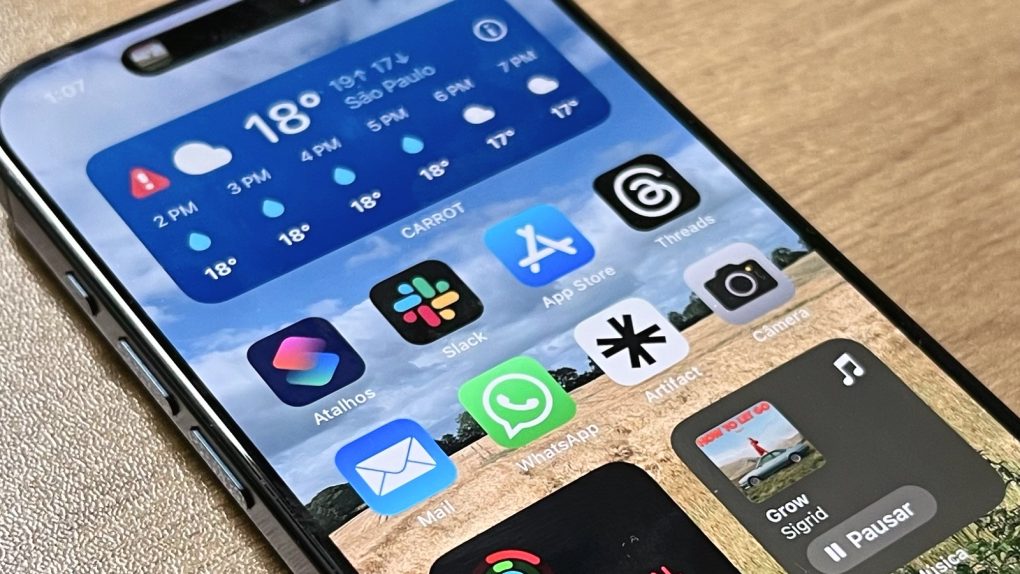With the European Union’s Digital Market Act (DMA) set to go into effect in March, Apple’s grip on the type of apps that iPhone users can download and install is poised to loosen considerably. For the first time in iPhone history, users will have the ability to officially download apps from outside the App Store. What’s more, developers will be able to launch third-party app stores. So yes, Fortnite will finally be coming back to the iPhone via an Epic Games Store app, but only for users in Europe.
Apple, of course, isn’t simply going to let a huge revenue stream fall by the wayside. In other words, developers looking to skirt around Apple’s commission rate of 30% are in for a rude awakening. As we covered recently, Apple plans to implement a range of new fees for developers looking to take advantage of the new App Store landscape.
What’s interesting about the new DMA, aside from Apple’s efforts to not lose any significant app income, is that Apple put up quite a fight beforehand. Apple over the past few years worked diligently to prevent the new EU law from becoming a reality but ultimately failed to persuade lawmakers to reverse course.
Phil Schiller on the new DMA rules
To this end, Apple’s Phil Schiller recently sat down with Fast Company and articulated why Apple still vehemently opposes the DMA. As you might expect, the crux of Schiller’s — and Apple’s — position is that the DMA ultimately hurts consumers insofar that it opens up a pandora’s box of security, privacy, and safety issues.
Regarding malicious software, Schiller emphasized that Apple will still be notarizing iPhone apps and reviewing them for malicious code.
The report reads in part:
It’s important to note, however, that this notarization process isn’t as in-depth as the App Store’s traditional review, which also checks, among other things, that an app is following content rules. Still, this notarization should be enough to stop a malicious app that’s attempting to mimic a real app (say, from Facebook or Starbucks) from being installed on a user’s iPhone.
Schiller himself explains that users can pick which App marketplace they want to use by default and that no App marketplace will be capable of downloading apps to a device without user permission.
“You have a place to go in Settings now to see the marketplaces you’ve approved and to turn off approval,” Schiller said. “And you can see what apps you’ve installed from that specific marketplace if you get concerned later.”
Beyond that, the new DMA will no longer give Apple much of a say regarding what type of apps will be available for download.
“Ultimately, there are things that we have not allowed on our App Store—things that we didn’t think would be safe or appropriate,” Schiller explained. “It will not be our decision whether those other marketplaces have the same terms and limitations.”
In other words, apps that formerly had no chance of appearing in the App Store — such as apps with violent or adult-themed content — will now be available for download. It’s also possible that apps featuring hate content and political disinformation will be available for download.
The DMA is effectively a double-edged sword. While it provides developers and users with more freedom, that freedom may come at the expense of user safety if we’re to take Apple’s concerns at face value.
Apple is doing all it can to protect consumers
Apple in a press release a few weeks ago noted that it’s implemented more than 600 new APIs for alternative browser engines, payment processing, and more.
The press release reads in part:
The new options for processing payments and downloading apps on iOS open new avenues for malware, fraud and scams, illicit and harmful content, and other privacy and security threats. That’s why Apple is introducing protections — including Notarization for iOS apps, an authorization for marketplace developers, and disclosures on alternative payments — to reduce risks and deliver the best, most secure experience possible for users in the EU. Even with these safeguards in place, many risks remain.
Nonetheless, there is a limit to what Apple’s new safeguards can accomplish.
Over the years, Schiller notes that Apple has digested “a lot of input from families, from governments, on things that we need to do to try to either not allow certain kinds of objectionable content on our App Store, or give users control over that experience to decide what’s best for themselves—and we have rules around that.”
And because these battle-tested rules will be weakened on third-party marketplaces, Schiller adds that this increases the “the risk of users, and families, running into objectionable content or other experiences.”
The DMA won’t hurt Apple’s financials
Incidentally, analysts believe that the EU’s new DMA won’t have much of a discernible impact on Apple’s bottom line. To this end, Morgan Stanley issued the following note a few months ago:
Importantly, the proposed changes in the Digital Markets Act (DMA) are regulator-driven, not consumer-driven. From the consumer perspective, we see very little demand for alternatives to the App Store given the unmatched security, ease of use (centralization), and reliability the App Store provides. According to our Fall 2022 Smartphone survey, less than 30% of iPhone owners are extremely likely to purchase a mobile app directly from a developer website vs. the App Store.
An EU-compliant version of iOS will arrive in March with the release of iOS 17.4.








